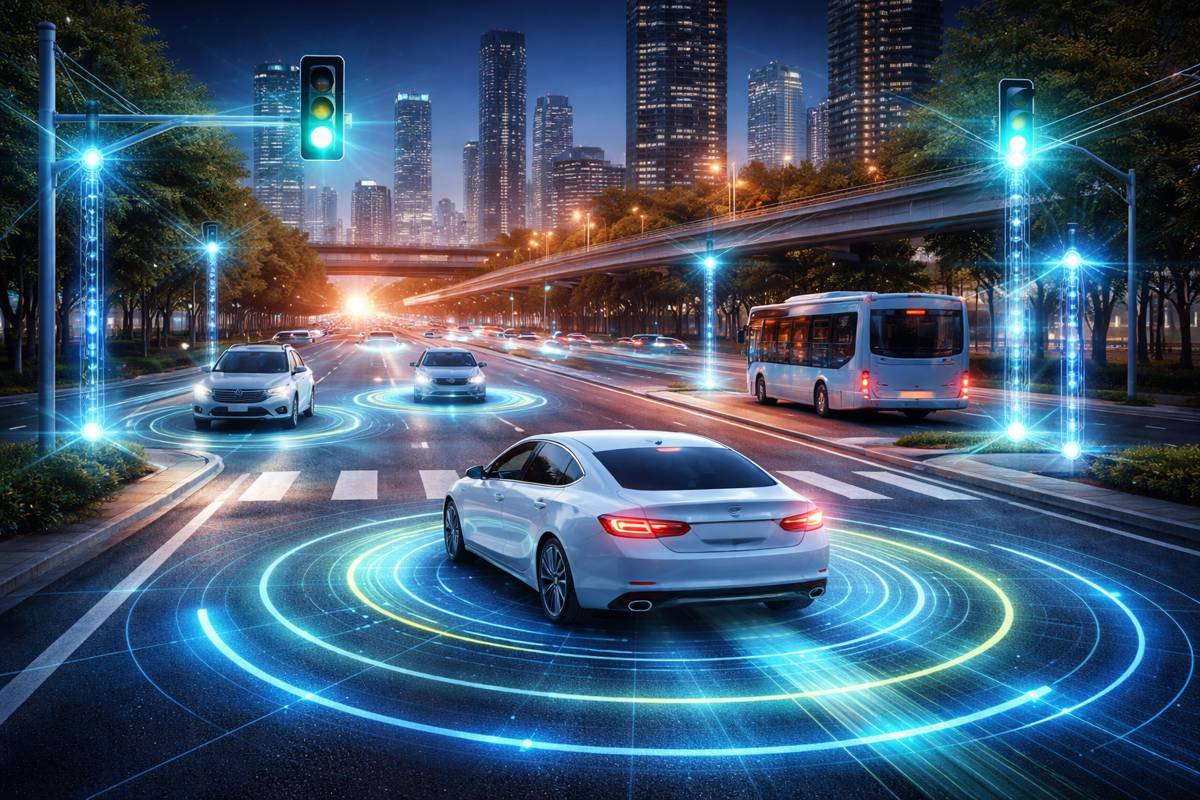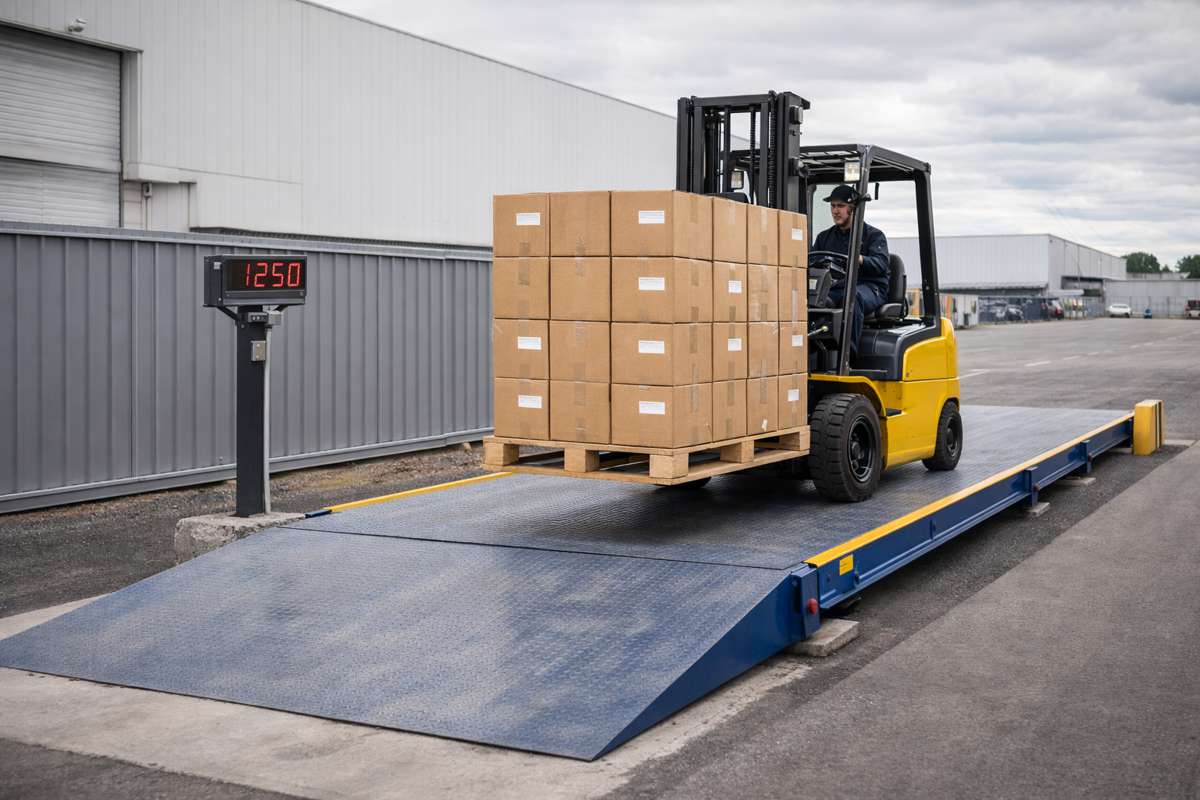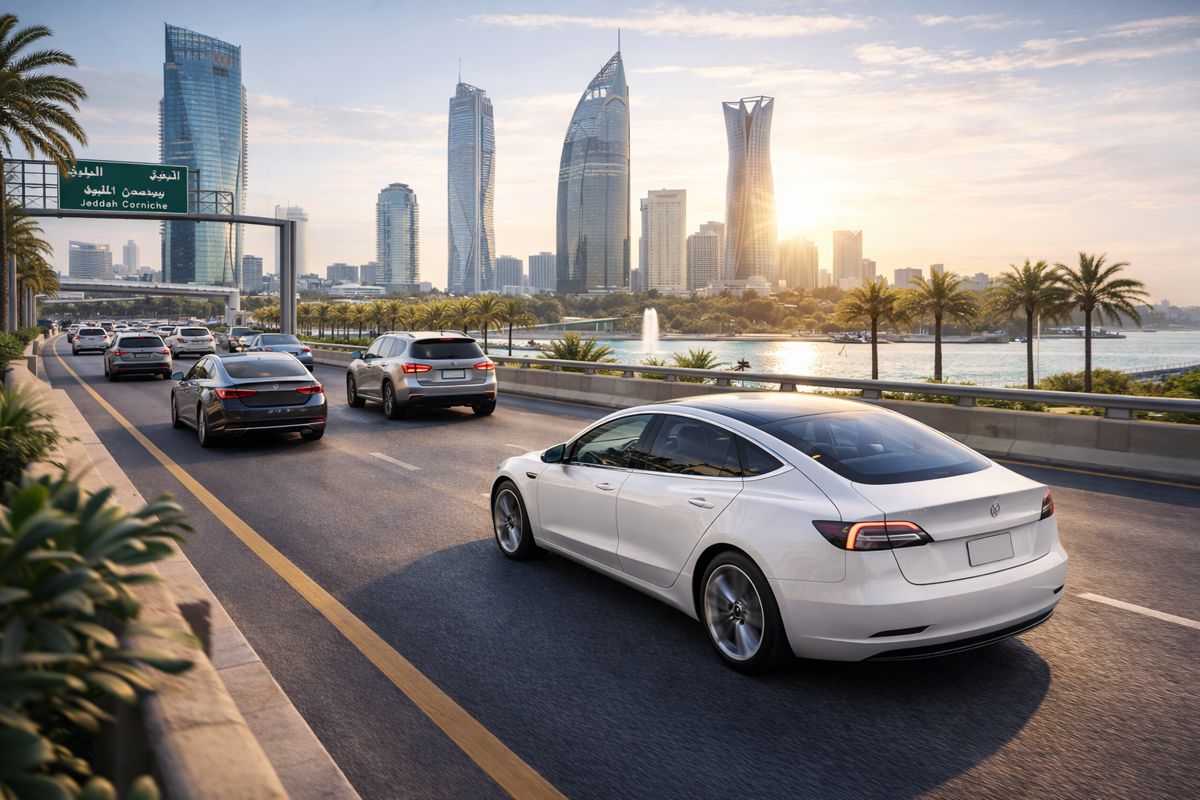Significantly faster broadband on the way for driverless cars and drone fleets
Unparalleled speed, capacity and reliability of new fibre broadband technology, invented by UCL researchers, could provide connectivity needed for applications of the future such as driverless cars and drone fleets.
The study, published in Nature Electronics, describes how the new telecommunications technology, called frequency referenced multiplexing, could provide more than 20 times the capacity of the best full fibre broadband networks available and 65 times the speed of typical current UK home broadband, along with a near-guaranteed connection and low latency1.
Telecommunications networks are critical to the functioning of the Internet – they are the digital equivalent of roads carrying the data that connect us to the Cloud. The best networks use fibre optic cables to transmit and receive information. For the new full fibre broadband that is rolling out throughout the UK, time division multiplexing (TDM) is the most common technology used to manage traffic, which combines the data of multiple users into one signal. Each user is assigned short time slots in which their data can be transferred in small chunks, before the data is reassembled at the destination.
The key issue with TDM is that each user’s data needs to wait for a time slot before it can be transmitted through the fibre, like cars waiting until they can drive onwards at traffic lights. With current technology, this approach has been necessary to coordinate transmission through the fibre, but this also limits the available data capacity and increases the time taken to send data through the network.
The fastest full fibre broadband services available in the UK offer upwards of one gigabit per second (Gb/s) download speed, usually with a much slower upload speed. Uptake of full fibre broadband has increased dramatically in recent years with the roll out of fibre optic connections to homes and businesses across the country, but for most UK broadband users, the final part of the line that goes into their homes remains older, slower copper wiring.
Consequently, the average broadband speed in the UK in September 2022 was just 65.3 megabits per second (Mb/s).
Demand for faster speeds and more reliable connections have also increased massively, from the rise of streaming on demand entertainment to the increase in videoconferencing use by people working from home since the Covid-19 pandemic. But certain applications of the future, such as driverless car networks, will require even higher speeds and near-guaranteed connections to operate safely and efficiently.
In this study, researchers from UCL developed frequency-referenced multiplexing to overcome the latency and bandwidth restraints of current approaches such as TDM.
They used optical and clock frequency synchronisation, enabled by frequency comb and signal processing techniques, to provide each user with a dedicated optical channel. With this new approach, each user has the digital equivalent of their own dedicated road lane to communicate with the Cloud, with no need to wait at traffic lights. As a proof-of-concept, they set up a frequency referenced multiplexing system to provide up to 64 users with speeds of up to 4.3 Gb/s per user (or an aggregated speed of 240Gb/s for all users).
The authors hope that frequency-referenced multiplexing will be able to achieve more than 20 times the capacity and over 65 times the speed of current typical UK broadband. Because the user data is transmitted and received in parallel, this reduces the latency, power consumption, and capacity issues that arise with other approaches. This has the potential to lower the cost for future full fibre broadband, as well as increase the network availability and speed for every cloud user.
Associate Professor Zhixin Liu (UCL Electronic & Electrical Engineering), senior author of the study, said: “Some technology commentators are predicting networks of driverless cars and drone fleets in the not-too-distant future, all controlled from the Cloud.
“Our present telecommunications infrastructure isn’t equipped for such advancements, which necessitate guaranteed connectivity, minimal latency, synchronized clocks, and vastly improved speeds. Our research suggests that the frequency-referenced multiplexing approach can upgrade our fibre infrastructure to meet these technical demands.
“In the short term, the technology has the potential to provide a much better home broadband service at a low infrastructure cost.”





























